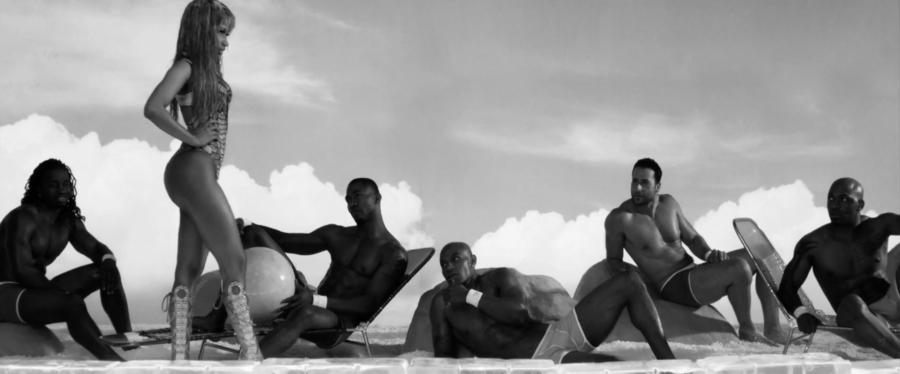Is the next step toward equality the objectifi cation of men? With more and more pop music videos featuring women artists using men as their sexual accessory (for example, the headless torso in Nicki Minaj’s “Super Bass”), it calls into question whether or not the tables are turning or if it is the next cycle of a toxic culture.
Katie James, a sociology professor at The University of Southern Mississippi, said that the portrayal of men in music videos may be a conscious statement women are making in the name of art.
“I think that we live in a culture wherein bodies are objectified (as) commodities,” James said. “While these images may shock us, as they aren’t the typical portrayals of men, this may be the artist’s point. Perhaps it is a shock value to make us think about and critique the ways that women are particularly portrayed.”
James suggests that even though women may be making a statement about equality and thereby taking back some power, the fact that men have more opportunities than women is still overpowering.
“Perhaps these videos do suggest that the tables are turning, but there is no evidence to suggest that the tables have turned in other areas of power,” James said. “For example, men continue to out-earn women. There are more men in positions of political and economic power than there are women. The bigger question you have is whether it alludes to a power shift in gender dynamics.”
Most sources that cover women objectifying men in music videos acknowledge that it does indeed occur, but that it is about time.
“If we define sexual objectification as seeing people as no more than the sum of their parts and what those parts can do for us sexually, then yes, of course women can objectify men,” said writer for Everyday Feminism Shannon Ridgway last year. “After all, there are women out there who ‘use’ men for sex with little regard to their feelings, personalities or desires, just as men do to women.”
Chris Pratt, star of “Guardians of the Galaxy,” and more recently, “Jurassic World,” says that the objectifi cation of men and women should be equal in light of his new iconic sex status. He argues that men do not mind being used for sex and that the media should do it more.
“I think it’s appalling that for a long time only women were objectified,” Pratt said. “But I think if we really want to advocate for equality, it’s important to even things out. Not objectify women less, but objectify men just as often as we objectify women.”
He then went on to identify the body as a material asset meant for upward mobility.
“There are a lot of women who got careers out of it, and I’m using it to my advantage,” Pratt said. “And at the end of the day, our bodies are objects. We’re just big bags of flesh and blood and meat and organs that God gives us to drive around.”
While some sources do not agree that this is the correct way of fixing the problem, most are in favor of the use of men. The idea is that, if men can do it, then so should women.
But does this mentality work outside of Hollywood? Men who are not famous or don’t have sex-idol status may not feel so supportive of these images in the media. Nathan Thornton, a sophomore political science major, says a woman who would use him as an object is not what he is looking for.
“I think objectification of men and women is a reflection of the overall state of our culture,” Thornton said. “It comes from a hedonistic perspective where there is no thought for the consequences of our actions. When I look for a relationship, I look for an intellectual and emotional connection. The objectification of men has the same consequences as objectifying women and neither are realistic are for real relationships.”






























